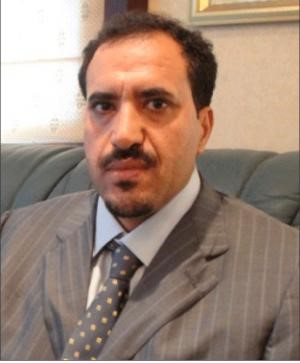Andrew McGregor
September 9, 2010
Yemen is not only one of the world’s most heavily armed nations on a per capita basis, but also serves as a regional hub for arms shipments, a lucrative trade that has the approval of Yemen’s government. One of Yemen’s most prominent arms dealers, Faris Manna, had a falling out with his former sponsor, President Ali Abdullah Saleh, after being imprisoned earlier this year on charges of providing arms to the Houthist rebels of northern Yemen. Manna recently gave an interview to an Arabic language daily in which he claimed Saleh’s government was responsible for arming the Houthist rebellion, a claim supported by his brother, the former governor of Sada’a governorate (elaph.com, August 17).
The 40-year-old Manna, a former organizer for the ruling General People’s Congress, describes himself not as an arms retailer but as a facilitator, arranging deals between Arab and African consumers and foreign suppliers, principally in Russia and Eastern Europe, where he maintains offices. “I conclude arms deals, like other international companies that facilitate deals between states and arms manufacturers… We bring the parties closer together, and help them reach agreements. This is our role, nothing else,” explained Manna. Despite the accusations against him, Manna denies selling arms in local Yemeni markets. “I have never done that. This is what tendentious people say. They spread such rumors. We work in the framework of the Yemeni constitution and law, as well as within the international law,” he stated.
According to the Yemeni arms merchant, who acted as an intermediary in negotiations between the government and the Houthist rebels, it is the state that made room in local markets for the arms trade, which it supplies through stocks discretely removed from military garrisons; “I want to say that there was collusion in certain army garrisons to hand over weapons to the Houthists. It has become clear that their ammunition came from the Army, and all their rifles and weapons came from the Army. There are photographs and documents that prove this. All the proof is available. The matter has become clear and unambiguous.” Manna has useful connections to the Houthists – his brother Hassan Manna was formerly governor of Sada’a governorate, the home of the Houthist rebellion. Faris says his brother resigned as a result of his unjust detention; “How could he go on working when his brother was wrongly and unjustly arrested? He refused to carry on working, but out of respect for the brother president of the republic, may God protect him, and in appreciation of the relations between us and him, we did not publish our resignation.” Several weeks after his brother’s arrest last January, Hassan Manna threatened to reveal the “true source” of the Houthist arms, suggesting that the Ministry of the Interior was heavily involved in shipping arms to the northern rebels, though this accusation was strongly denied by Brigadier General Muhammad Abdullah al-Qawsi, following which Hassan Manna warned the press against publishing any further comments on the issue delivered under his name (Yemen Tribune, February 21).
Manna claims the charges against him were the work of the National Security Agency (NSA), which sought to create a divide between himself and the president, his long-time patron. In June, a supporter of Faris Manna fired on a security convoy carrying him to court from Sana’a rooftops (Yemen Observer, May 11). Manna denied allegations that his family was behind the attack (Yemen Gazette, July 3).
This article first appeared in the September 9, 2010 issue of the Jamestown Foundation’s Terrorism Monitor

